Aug. 25, 2021
Contact: Deidra Ashley, ashleyde@missouri.edu
If you’ve scrolled through the University of Missouri’s Instagram, you’ve likely seen the #DogsofMizzou. From Chihuahuas to Great Pyrenees (we see you, Harlan!) — Mizzou faculty, staff, students, alumni and friends have some of the cutest canines around. In honor of National Dog Day, meet a few of these pups who hold important jobs on campus.
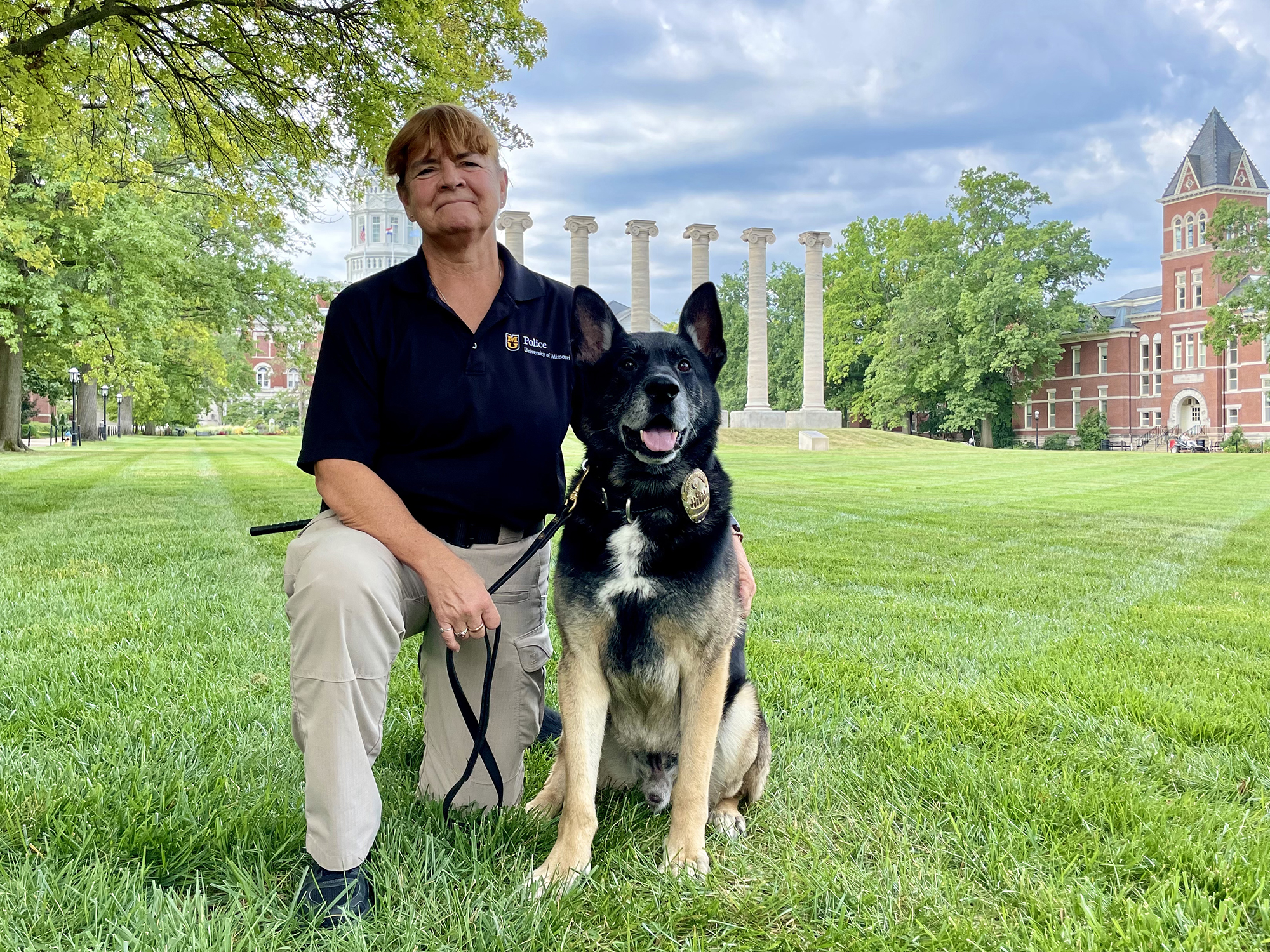
Brass, University of Missouri Police Department explosives K-9
Brass joined the force in 2015 thanks to a donation from Jim and Billie Silvey. Born and bred in Holland, the Netherlands, he originally earned explosives detection dog certification through the North American Police Working Dog Association. Each year since, he has been certified through the Missouri State Police Canine Association.
Brass is the only explosives K-9 in Boone County. He works with his handler, officer Joan Haaf, to patrol campus and sporting events, perform building sweeps and respond to bomb threats.
Breed: German shepherd
Years at Mizzou: Six
Birthday: Nov. 2, 2013
Favorite toy: A hunk of old fire hose (to play tug of war with!)
Fun fact: When he’s not out on patrol, Brass loves spending time at home with officer Haaf and her five other dogs.
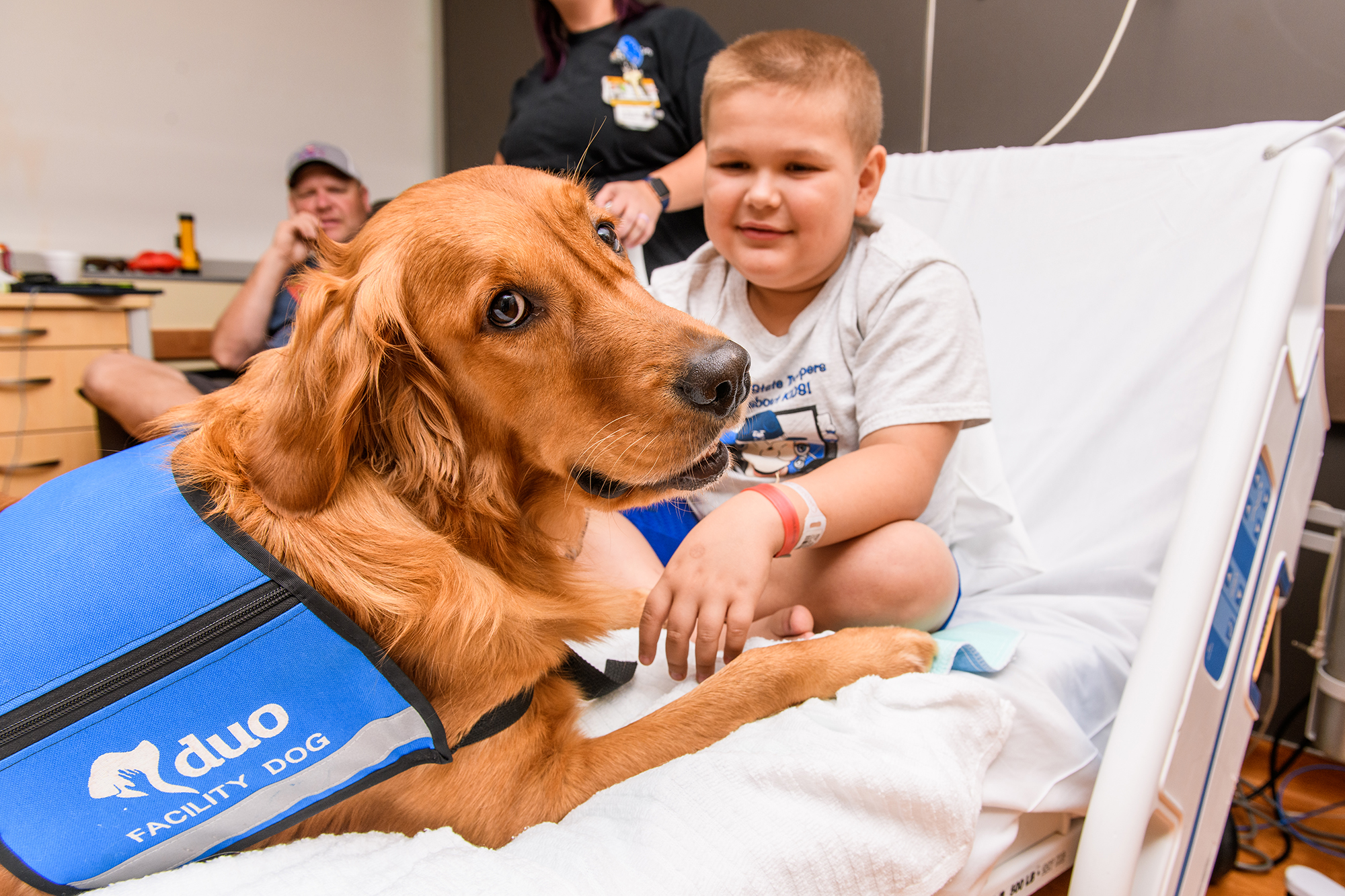
Link, Children’s Hospital facility dog
Link became the official facility dog of MU Health Care’s Children’s Hospital in November 2018. He works closely with his child life specialist handlers as they help young patients. Link helps in three ways: distraction, motivation and comfort. He can distract a patient who is upset about receiving stitches or having blood drawn. He can motivate a child to get out of bed and take a walk. And he can help make an unfamiliar place feel more like home.
Breed: Golden retriever
Years at Mizzou: Three
Birthday: Oct. 24, 2016
Favorite toy: Nylabones and squeaky toys
Fun fact: Link knows when to be on his best behavior, with one exception: He sometimes gets what his handlers call “man burps.”
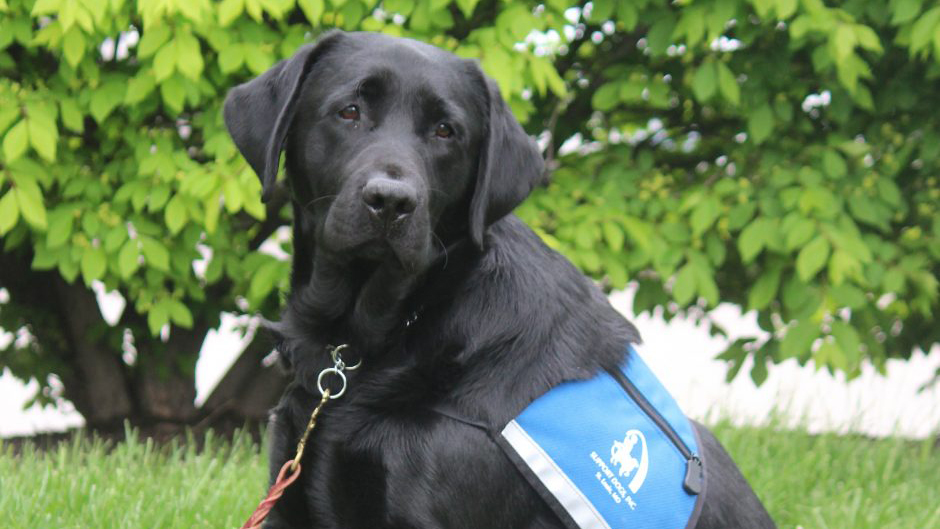
Rhett, Thompson Center for Autism and Neurodevelopmental Disorders facility dog
Rhett started his job at the Thompson Center for Autism and Neurodevelopmental Disorders in May 2015. Similar to Link, he is a facility dog that helps assist many people. Rhett is frequently used to calm children during lab procedures, such as when drawing blood. He can help relax children performing a frustrating task and even demonstrate tasks, such as pushing in a chair.
Breed: Black Labrador retriever
Years at Mizzou: Six
Birthday: July 19, 2013
Favorite toy: Football
Fun fact: Rhett enjoys playing find the ball and fetch. He loves belly rubs and is famous for his goofy grins.
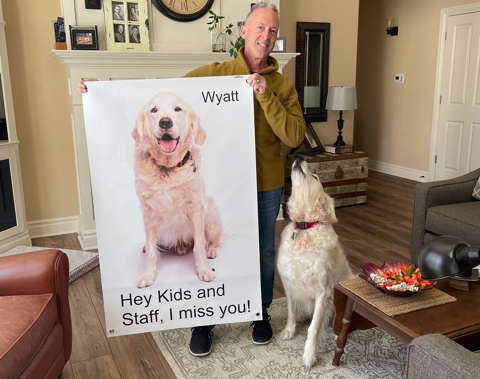
Pet-Assisted Love and Support (PALS) program
College of Veterinary Medicine students know the impact animals have on our daily lives. That’s why they created the Pet-Assisted Love and Support (PALS) program where students and community members take their certified dogs to hospitals and nursing homes for visits. Dogs must pass a canine good citizen test and undergo a behavioral screening to be approved to visit PALS facilities.
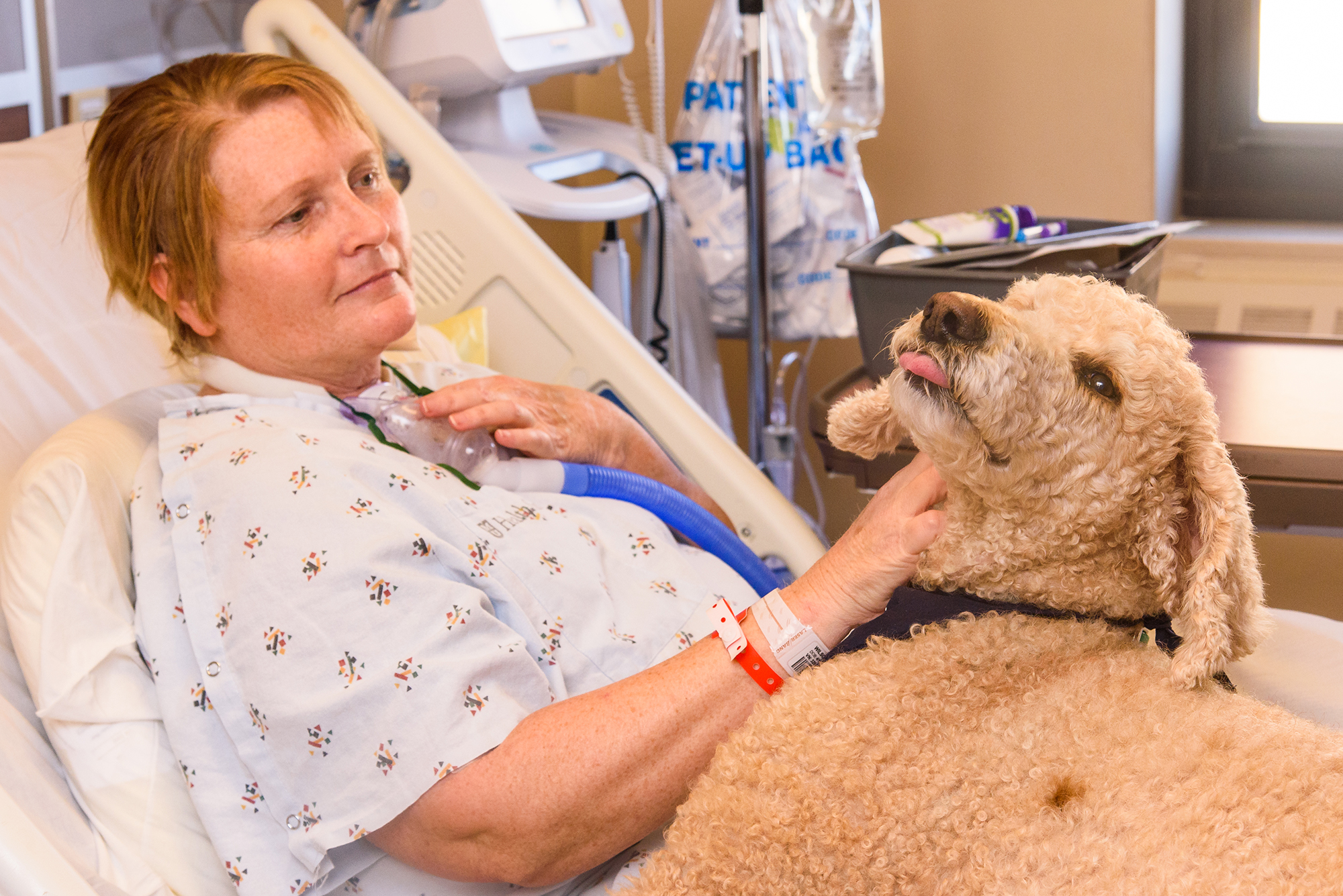
MU Health Care’s Wags therapy dog program
Studies have shown that therapy dogs in hospitals reduce patients’ blood pressure, lower pain perception and improve experience in children and adults. That’s why MU Health Care created the Wags therapy dog program in 2019. The program invites community members and their certified therapy dogs into MU Health Care facilities to visit with patients, visitors and staff. The program currently has more than 20 therapy dogs.



